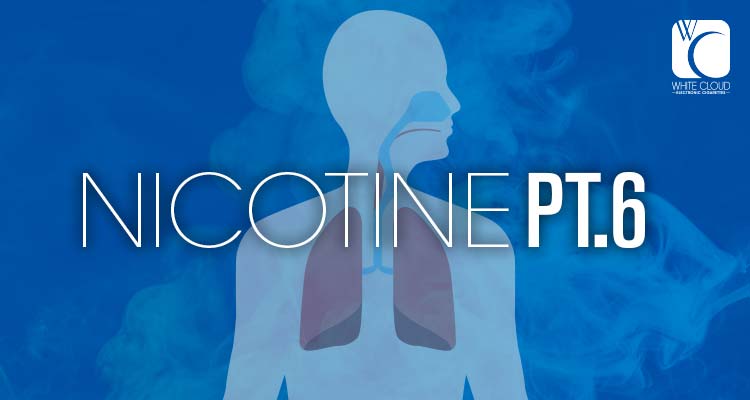Smoke-free workplaces have become standard in many cities, but some employers take their anti-tobacco policies a step further by prohibiting employees from smoking even while they are not at work. While such policies are controversial, U.S. courts have upheld them as lawful. How do bosses monitor employees’ behavior when they are off the clock? They use a test that looks for nicotine, of course. Unfortunately, e-cigarette users are not exempt from this practice, which is why it’s important for vapers to understand how the human body metabolizes nicotine.
Understanding How Nicotine Stays in the Body

Nicotine breaks down into a metabolite called cotinine within 2-11 hours after consumption; however, cotinine remains detectable in the user’s hair, blood, saliva and urine for up to 30 days. Some employers use cotinine tests to determine if prospective employees use tobacco.
Of course, there is a problem: Not all nicotine products are tobacco products. Most notably, smoking-cessation tools such as nicotine patches and some e-liquids contain pure nicotine. When derived from the tobacco plant, small doses of nicotine are harmless and may even have therapeutic value. It’s the many other chemicals in tobacco that cause cancers and other health issues linked to smoking. Nicotine can also be synthetically produced. E-cigs and other nicotine-containing products get a bad rep due to their association with smoking.
Related: The Possible Therapeutic Benefits of Nicotine
When Does Nicotine Leave Your System?
How quickly nicotine and cotinine get metabolized before leaving your system depends on your genetics, age, diet and other health factors. It also depends on how much and how often you use nicotine, as well as how nicotine enters your system and how your nicotine levels are tested.
Fruits and vegetables containing large amounts of vitamin C can accelerate your metabolism and speed up the elimination process. Exercise, proper hydration and eating foods rich in antioxidants are also ideal for flushing out nicotine. If you’re trying to kick your tobacco habit, keeping a healthy diet will also help you fight off urges to smoke.
Related: Overcoming the Smoker's Flu
How Long is Nicotine in Your Blood?
If you’re a vaper who is applying for jobs in the public health sector, you could be subject to nicotine testing and, if you don’t pass, denied employment. That’s why it’s a good idea to take a vaping break for a few days if you’re worried about being tested. So how long is nicotine in your system? Blood tests can detect cotinine up to 10 days after you last vaped. Although blood tests are the most accurate method, there are less invasive ways to test for nicotine use, so most employers do not request blood samples.
How Long is Nicotine in Your Urine?
Urine and saliva tests are commonly used to screen employees for nicotine consumption. Both tests only detect cotinine within 3-4 days. Anyone who inhales a lot of secondhand smoke, including non-smokers, can sometimes have cotinine in their systems for longer periods of time. Therefore, it’s possible to get a false positive from a urine test. Hair tests are the most damning; they can detect nicotine and cotinine up to a year after the last use. Fortunately, hair tests are expensive and are rarely used by employers.
Keep in mind that e-cigs are less effective at delivering nicotine than tobacco cigarettes. Since vapers generally take in less nicotine than smokers, it’s safe to assume that e-cig users will be less susceptible to tipping off a nicotine or cotinine test. Nonetheless, you should lay off of vaping for a few days if you’re worried about an employer asking for your urine or saliva.






